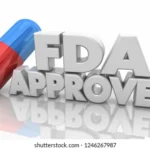
healthcareitnews.com
Frequently Asked Questions In Clinical Research
Que: What is FDA?
Ans: The Full form of the FDA is Food & Drug Administration, which is an agent that is in the USA for the health and human service. The role of the FDA is to ensure the safety, efficacy, effectiveness, quality, and security of human and veterinary drugs, vaccines and other medical products and medical devices.
Que: What is the responsibility of the FDA?
Ans: The responsibility of the FDA is to protect humans by ensuring the safety of food (except for meat from livestock, poultry and some eggs which are regulated by the U.S Department of Agriculture) are safe, wholesome, sanitary are properly labelled, it also ensures that drugs, medical products, devices are intended to use for human. It also regulates tobacco products.
Que: What drugs FDA is not approved?
Ans: Acetaminophen, Amobarbital, Amobarbital Sodium, Amyl Nitrate, Chloral Hydrate, Digitoxin, Ephedrine Sulphate, Mephobarbital etc.
Que: What does it mean if a drug is not approved by FDA?
Ans: Unapproved drug is called “Off level use”
Que: What are the 4 steps of testing a drug?
Ans: 1. Discovery and development
2. Pre Clinical Research
3. Clinical Research
4. FDA Review
Que: How long FDA approval takes?
Ans: FDA can take 1 week to 8 months depending on whether you are registered, to submit a premarket approval application.
Que: Does the FDA test drugs?
Ans: No, it is the responsibility of the company seeking approval to market a new drug to conduct laboratory and animal tests on the safety and effectiveness of the proposed new drug and then submit that information to the FDA for review by CDER physician, Statistician, chemist, pharmacologist and other scientists.
Que: What are the different types of drugs application to submit to the FDA?
Ans: There are 4 types of drug applications to submit FDA:
- Investigational New Drug Application (IND): This application has to be submitted to grant permission for conducting clinical trials in humans. This application is submitted after the preclinical phase to FDA or DCGI approval.
- New Drug Application (NDA): New Drug Application is used to obtain authorization for marketing and sales. It is submitted after phase-3 of the clinical trial. This application requires all the information related to the drug-like manufacturing process, technical points, pharmacology, chemistry, biopharmaceutical and statistics.
- Abbreviated New Drug Application (ANDA): ANDA is submitted to take approval for the generic drug. This application provides data on drugs for the review and approval of generic drugs. This application does not require submitting data regarding preclinical and clinical trials in humans.
- Biologic Licence Application (BLA): This application is required for the approval of the marketing of drugs under the supervision of the public health service act. This act is for biologics products for ale in interstate commerce to hold a licence for the product.
Que: What is a generic drug?
Ans: Generic Drugs are drugs that have been created in the same way as branded drugs that are already on the market in terms of dosage forms, safety, strength, route of administration, quality, performance, characteristics, and intended use. In short, generic drugs function like branded medicines and provide the same benefit. Patients can take generic medicine as an alternative to the brand’s counterpart.
Disclaimer: All the content of this article is for information purposes only.
References: www.fda.gov

 Colorectal Cancer: Dostarlimab Clinical Trial
Colorectal Cancer: Dostarlimab Clinical Trial NDA: New Drug Application & Its Contents
NDA: New Drug Application & Its Contents Investigational New Drug Application (IND)
Investigational New Drug Application (IND) Case Report Form In Clinical Trial
Case Report Form In Clinical Trial


